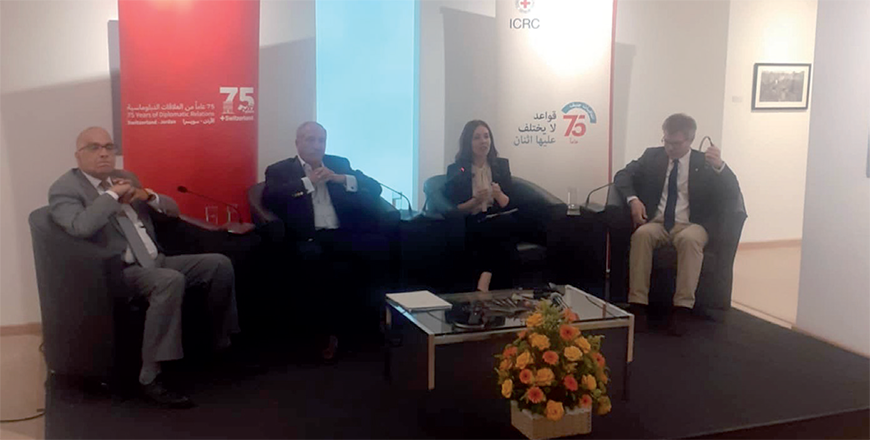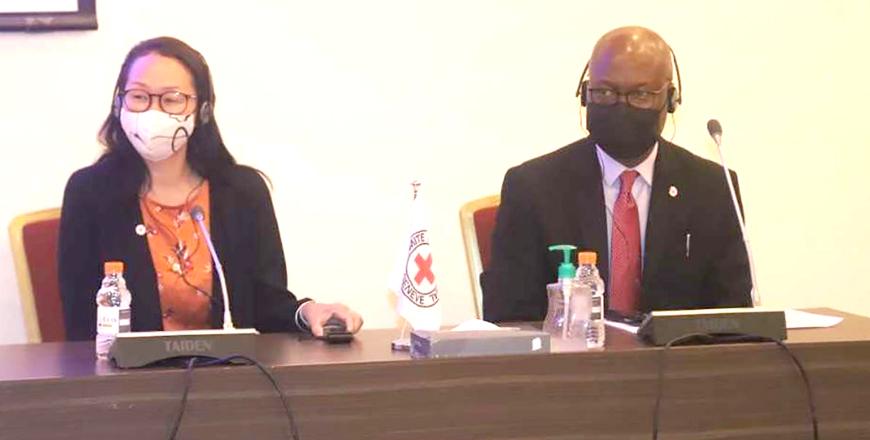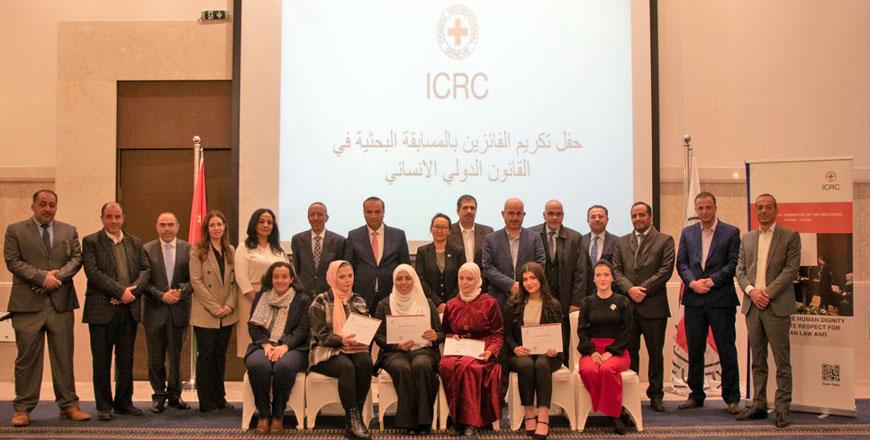You are here
Dialogues on Humanity Geneva Conventions anniversary draws attention to Israeli war crimes in Gaza
By Saeb Rawashdeh - Jul 05,2024 - Last updated at Jul 08,2024

Panelists at the talk ‘Dialogues on Humanity’ held on Wednesday at the National Gallery of Fine Arts in Amman, from left to right: Professor Omar Okour from The University of Jordan(left), Senator Nasser Judeh and Bruno Raymond from ICRC (Photo by Saeb Rawashdeh)
AMMAN — The Swiss embassy in Jordan and Iraq, teamed up with the International Committee of the Red Cross (ICRC) in Amman and inaugurated on Wednesday “Dialogues on Humanity” at the National Gallery of Fine Arts, to mark the 75th anniversary of the 1949 Geneva Conventions and the 75th jubilee of Jordanian-Swiss diplomatic ties. The ongoing Israeli aggression in Gaza and the West Bank, civil wars in the region and armed conflicts around the world, make the topic of human rights and international relief efforts more actual.
“These conventions ratified after horrors of WW2 and withstood the test of time and became a bedrock of the international humanitarian law,” noted Senator and former deputy prime minister and minister of foreign affairs Nasser Judeh in his speech, adding that the Geneva Convention established the minimum standard of human treatment, safeguarding civilians and those who no longer take part in hostilities.” They articulate universal understanding that even in conflict there are limits and constraints in that regard,” Judeh underlined, noting that this body of laws is a testament of humanity and protective commitment that even in times of war we can preserve decency.
In the ongoing conflict in Gaza hospitals, schools, civilian homes and places of worship have been targeted by Israeli Forces.
“Such actions are clear violations of the international law and may constitute war crimes,” Judeh said, “Parties of the conflict must adhere to principles of distinction and proportionality and precaution to protect civilians.”
Accountability is essential for the integrity of IHL. Without it, the laws designed to protect the vulnerable lose its importance, Judeh underlined.
Reprisals against civilian populations and acts of violence against civilians in order to spread terror, starvation of civilian population and so on are prohibited, are prohibited by the international humanitarian law, Judeh said.
Talking about the practical examples how to implement the international humanitarian law, Protection Coordinator of ICRC in Jordan Bruno Raymond said that objective of humanitarian organisations is to safeguard protection of civilian population in times of armed conflicts.
Implementation of the IHL faces many challenges that the humanitarian organisations face on the ground, Raymond continued, adding that during his work with ICRC he realised that each conflict has its difficulties.
“The first chapter is prevention of the conflict and integration of international standards of the humanitarian law on the ground,” Raymond stressed, noting that training officers if crucial.
“The principles of neutrality, impartiality and independence must be respected to allow these organisations to perform their vital role,” Judeh said.
Related Articles
AMMAN — The International Committee of the Red Cross (ICRC) organised a specialised training course titled “Ethics of Humanitarian Reporting
AMMAN — The Swiss embassy in Jordan and Iraq, in collaboration with the International Committee of the Red Cross (ICRC) in Amman, inaugurate
AMMAN — The International Committee of the Red Cross (ICRC) on Monday announced the names of the winning students of the first International


















